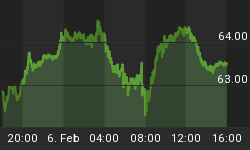Add extreme selling by corporate insiders to last week's list of worries. This "smart money" is selling to a degree last seen February 18, 2011. Following this signal, the SP500 spent the next 6 months going sideways before falling 18% over a 4 week period in August. Of course, the market was "saved" by Operation Twist. Last week's issues included: 1) only modest extremes in investor sentiment at the recent bottom; 2) lack of consensus amongst the various sentiment data; 3) the lack of both bulls and bears in this market; in essence and by our measures, investors are just moving to the sidelines. The problem with this market is that it can't seem to sell off enough to produce a sustainable rally.
Despite these sentiment headwinds, the market has found a floor. Holiday trading, hope and the expectation for a fiscal cliff resolution, and fading the "dumb money" are some of the reasons. But the rubber band isn't stretched too far. There aren't any bears to produce short covering. However far the rally goes, it will likely be a part of what will eventually be recognized as a market top.
The "Dumb Money" indicator (see figure 1) looks for extremes in the data from 4 different groups of investors who historically have been wrong on the market: 1) Investors Intelligence; 2) MarketVane; 3) American Association of Individual Investors; and 4) the put call ratio. This indicator is neutral. If the indicator had stayed bearish for two consecutive weeks, it would have been a bullish signal.
Figure 1. "Dumb Money"/ weekly
Figure 2 is a weekly chart of the SP500 with the InsiderScore "entire market" value in the lower panel. From the InsiderScore weekly report: "Market-wide sentiment continues to move along a negative path as our key tracking metrics are now showing Sell Bias or Strong Sell Bias signals. Some of the selling is likely a reaction to the possibility of higher capital gains tax rates going into effect next year, particularly sales by 10% Owners. Selling volumes presently look very similar to those of December 2010, when the potential for higher taxes the following year was also looming. Qualitatively, we've recently seen activity that we believe is likely tax-avoidance related and the volume of sales by 10% Owners, many of whom are private equity investors who could be hit very hard by increased tax rates, is very high."
Figure 2. InsiderScore "Entire Market" value/ weekly
Figure 3 is a weekly chart of the SP500. The indicator in the lower panel measures all the assets in the Rydex bullish oriented equity funds divided by the sum of assets in the bullish oriented equity funds plus the assets in the bearish oriented equity funds. When the indicator is green, the value is low and there is fear in the market; this is where market bottoms are forged. When the indicator is red, there is complacency in the market. There are too many bulls and this is when market advances stall. Currently, the value of the indicator is 59.97%. Values less than 50% are associated with market bottoms. Values greater than 58% are associated with market tops. It should be noted that the market topped out in 2011 with this indicator between 70% and 72%.
Figure 3. Rydex Total Bull v. Total Bear/ weekly
TheTechnicalTake offers a FREE e-newsletter: HERE
Visit TheTechnicalTake website: HERE















